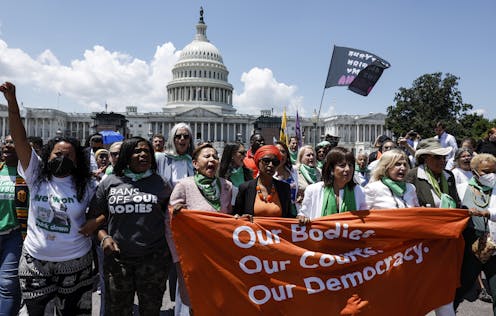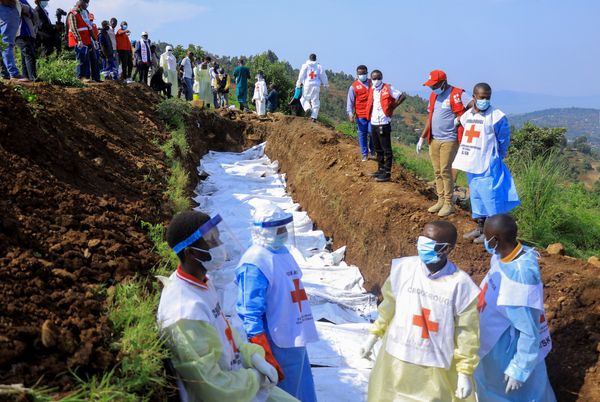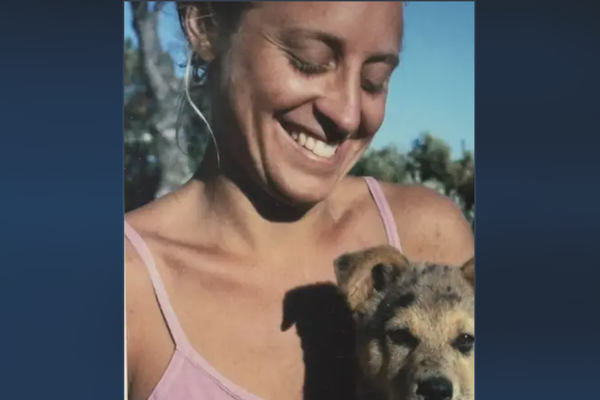
It’s been a year since the Supreme Court handed down its decision in Dobbs v. Jackson Women’s Health Organization, and the predictions by several experts that the U.S. Supreme Court decision to overturn Roe v. Wade would lead individual states to ban abortions have come true.
Also true has been the impact of those bans and restrictions on the reproductive health disparities between Black and white women.
As a scholar who studies reproductive policy, politics and social justice movements, I have always been aware that, even when Roe was in place, abortion access is an elusive right for women of color, women in rural areas and women living in poverty.
Black women comprise a disproportionate percentage – 39% – of abortion patients in the United States, and many live in communities with limited access to health services, including family planning clinics and pharmacies. They also disproportionately experience higher rates of other reproductive health conditions, such as infant mortality and pregnancy-related complications and deaths.
The lack of clinics means that Black women often delay or forgo necessary health care services.
Before the reversal of Roe, many Black women, who are likely to live in states with abortion restrictions, had to worry not only about the cost of the procedure but also about travel costs and the possible loss of wages.
Given the continued actions of anti-abortion policymakers at the state level, it’s my belief that the U.S. will continue to see more restrictions – not fewer – and thus make it harder for Black women to have access to reproductive health care.
Restricted abortion access
A small number of states, such as California, New York and Washington, have passed laws or constitutional amendments that guarantee or strengthen abortion access.
Some of those states have seen an increase in demand for abortion at clinics. In fact, the demand has quadrupled for some clinics in California.
But at least 17 states, mostly concentrated in the Southeast and the Midwest, have fully or partially banned abortions.
An additional 10 states have further restricted abortion access without banning abortion outright. Moreover, some state legislatures have begun to pass legislation that makes it illegal to travel across borders to obtain abortions.
That means that pregnant women – and those who assist them – can potentially face criminal charges for obtaining abortions in another state.
Two states with the largest populations in total numbers of African Americans – Texas and Florida – have abortion bans.
The states with the largest percentages of African Americans – 37% in Mississippi, 31% in both Georgia and Louisiana, and 26% in Alabama – have the most restrictive abortion laws.
In fact, abortion is completely banned with few exceptions in Texas, Georgia, Mississippi, Louisiana and Alabama.
These bans have a detrimental impact on access for Black women. They now have to travel – even more so than before – to obtain an abortion, assuming they have the financial means to do so.
Reproductive health disparities beyond abortion
The recent tragic death of U.S. Olympic champion Tori Bowie during childbirth is a stark reminder of the reproductive health disparities that continue to plague the Black community.
Black women, regardless of income or educational level, are three times as likely to die from pregnancy-related complications as white women. Black women have higher levels of obesity, hypertension, diabetes and cardiovascular disease that can contribute to these complications.
They are also more likely to receive little or late prenatal care, or none at all.
But this only partially explains this disparity.
Researchers have shown that the implicit bias and stereotypical assumptions of health care providers are also key factors.
Pregnant Black women are often refused hospital admission for delivery if they lack health insurance. Sometimes they are denied on the mere assumption that they do not have insurance.
In various studies, Black women have reported that they have been treated disrespectfully by medical personnel dismissive of their fears and concerns about their reproductive health. Black women’s complaints about pain are often ignored, which can lead to misdiagnosis or delayed treatment.
In addition, Black women are more likely to be coerced into submitting to unnecessary cesarean sections, which can lead to major medical complications.
Black women report that they must be particularly assertive with health care providers to ensure that their reproductive needs are addressed.
Where do we go from here?
According to the Pew Research Center, 57% of Americans disapprove the reversal of Roe, and 62% say that abortion should be legal.
The Dobbs ruling is not only out of step with the general public, it also does not jibe with the opinions of most African Americans, of which a significant majority – 68% – agree that abortion should be legal in all or most cases.
It remains to be seen if these sentiments will have an effect on the upcoming elections.
In the meantime, abortion access remains only one part of Black women’s reproductive health challenges.
Kimala Price does not work for, consult, own shares in or receive funding from any company or organization that would benefit from this article, and has disclosed no relevant affiliations beyond their academic appointment.
This article was originally published on The Conversation. Read the original article.







